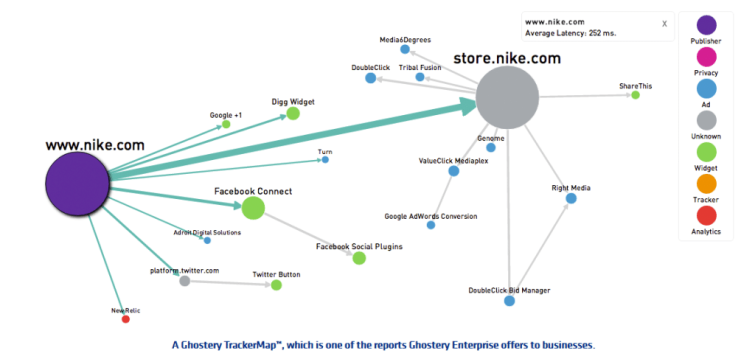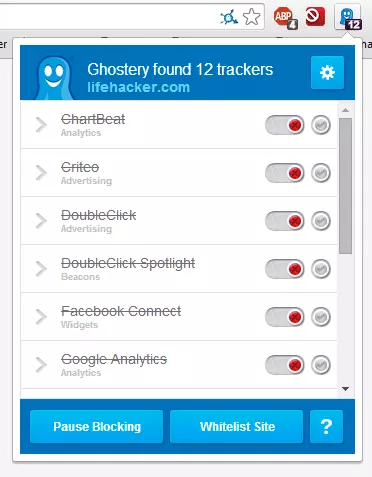Tracking internet users as they surf the web is an affront to personal privacy, but is so useful as an advertising tool that it has become almost ubiquitous.
In order to combat this tracking, a number of browser extensions have been developed, and, with around 20 million users, Ghostery is among the most popular of them.

In other words, the company we trust to protect us from advertisers, profits from helping those same advertisers! Many are likely to feel uncomfortable about that.
As a way to make money this has proven highly successful, as Evidon CEO Scott Meyer boasted in an interview with VentureBeat,
‘We’ve got a really nice business model.’
We have a feeling that the Electronic Frontier Foundation (EFF) had business practices such as this in mind when it developed its own anti-tracking extension Privacy Badger, and in its FAQ when asked ‘How is Privacy Badger different to Disconnect, Adblock Plus, Ghostery, and other blocking extensions?’, it answered,
‘Several of these extensions have business models that we weren't entirely comfortable with.’

In fairness to Evidon, it is completely open and transparent about its business model, the Ghostrank feature is entirely opt-in (disabled by default), and all information collected from volunteers is completely anonymous.
In the past we have always recommended the open source anti-tracking extension Disconnect over Ghostery, and this recommendation stands (although even more so now). The EFF’s Privacy Badger is also a good alternative, although it is still in the early stages of development and so may contain vulnerabilities and flaws.
Mobile users have much less of a choice when it comes to anti-tracking extensions, as Disconnect and Privacy Badger are compatible with desktop systems only. Ghostery on the other hand is available for both iOS and Firefox Android, and so remains the best (only) option for users on the go…
